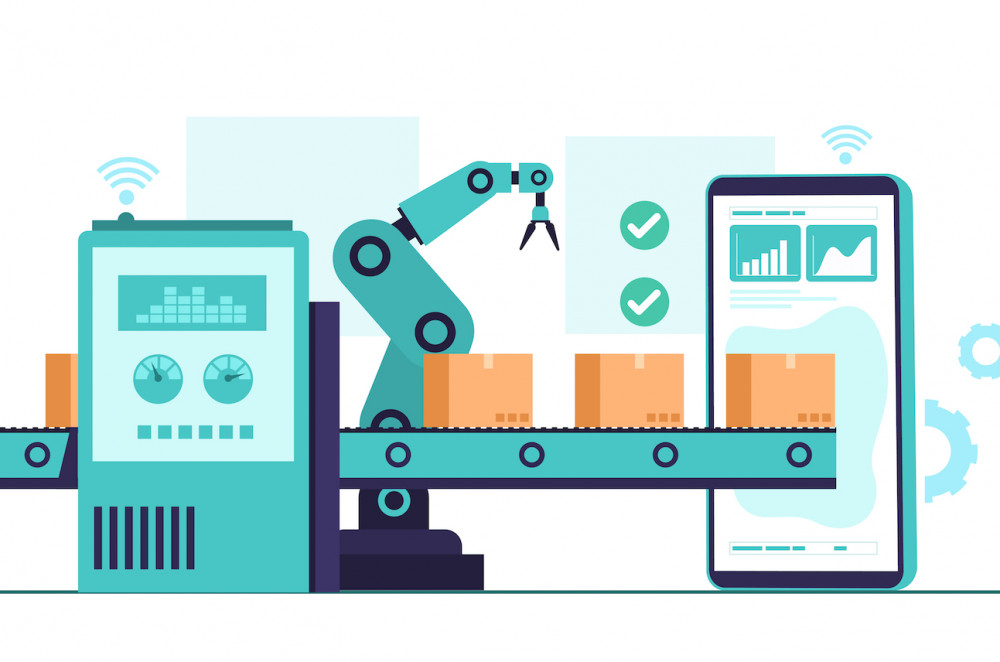Real-Time Production Monitoring: A Comparison Across Different Industries
Real-time production monitoring is a transformative technology that offers unique benefits tailored to the specific needs of various industries. This post provides a comparative analysis of how real-time production monitoring is applied in the food and beverage, automotive, and electronics industries, highlighting the distinct advantages each industry gains.
Food and Beverage Industry
Application
In the food and beverage industry, real-time production monitoring ensures compliance with stringent safety and quality standards. Sensors and monitoring systems track every stage of production, from raw material handling to final packaging.
Unique Benefits
- Quality Assurance: Continuous monitoring ensures that products meet safety and quality standards, reducing the risk of contamination and recalls.
- Regulatory Compliance: Real-time data helps manufacturers comply with food safety regulations by providing traceability and documentation.
- Waste Reduction: Monitoring systems optimize resource usage, reducing waste of raw materials and energy.
Case Example
A beverage manufacturer uses real-time monitoring to track fermentation processes, ensuring consistent quality and taste in each batch. This not only improves product quality but also minimizes the risk of spoilage.
Automotive Industry
Application
In the automotive industry, real-time production monitoring focuses on optimizing complex assembly lines and ensuring the precision of components.
Unique Benefits
- Efficiency Optimization: Real-time data helps identify bottlenecks and inefficiencies in the production line, enabling swift corrective actions.
- Predictive Maintenance: Monitoring equipment health prevents unexpected breakdowns, reducing downtime and maintenance costs.
- Quality Control: Detailed monitoring ensures that every component meets strict quality standards, enhancing the reliability of the final product.
Case Example
An automotive manufacturer uses real-time monitoring to oversee robotic assembly lines. Sensors track the performance of each robot, predicting maintenance needs and ensuring seamless operations, which leads to higher production rates and lower operational costs.
Electronics Industry
Application
In the electronics industry, real-time production monitoring is essential for managing intricate production processes and maintaining high precision standards.
Unique Benefits
- Process Precision: Monitoring systems ensure that each step in the production process is executed with high precision, crucial for complex electronic components.
- Yield Improvement: Real-time data helps identify defects and inefficiencies, improving yield rates and reducing the number of defective products.
- Inventory Management: Real-time tracking of components and materials helps maintain optimal inventory levels, reducing both shortages and excesses.
Case Example
An electronics manufacturer implements real-time monitoring to oversee the production of circuit boards. The system tracks soldering processes and component placements, identifying defects early and ensuring high-quality outputs.
Comparative Analysis
Common Benefits
Despite the differences in applications and benefits, real-time production monitoring offers several common advantages across all industries:
- Increased Transparency: Real-time data provides clear visibility into production processes, enhancing decision-making and operational transparency.
- Enhanced Efficiency: By identifying and addressing inefficiencies quickly, manufacturers can improve overall production efficiency.
- Data-Driven Insights: Access to real-time data enables manufacturers to make informed decisions, optimize processes, and implement continuous improvements.
Industry-Specific Advantages
- Food and Beverage: Emphasis on quality assurance, regulatory compliance, and waste reduction.
- Automotive: Focus on efficiency optimization, predictive maintenance, and stringent quality control.
- Electronics: Importance of process precision, yield improvement, and effective inventory management.
Conclusion
Real-time production monitoring is a versatile technology that brings significant benefits to various industries, tailored to their unique needs. In the food and beverage industry, it ensures product safety and regulatory compliance. In the automotive industry, it enhances efficiency and reliability. In the electronics industry, it improves process precision and yield rates. By leveraging real-time production monitoring, manufacturers in these industries can achieve greater operational efficiencies, higher product quality, and better overall performance.
Explore how real-time production monitoring can be tailored to your industry and take your manufacturing operations to the next level!
Interested in digital transformation? Let's discuss!
Other articles
While both involve structured review and analysis, their objectives, scope, and outcomes differ significantly. This article exploring this topic further.
